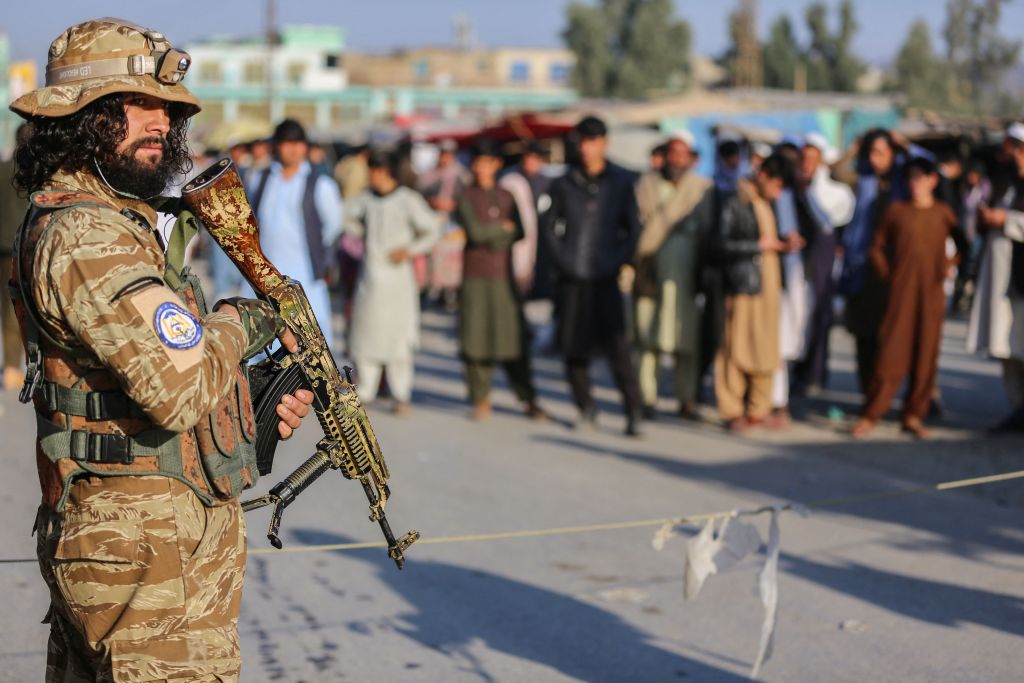
A United Nations report released on 1 June provides a stark warning about the danger of the Taliban rule in Afghanistan and for the region and beyond. It claims that the ethnic Pashtun Taliban have not only instituted a reign of terror, targeting especially Afghan women and girls as well as the non-Pashtun population, but also brazenly accommodated al-Qaeda and other terror groups. The warning deserves urgent attention if the world is to circumvent another wave of terrorism arising from Afghanistan directly or indirectly.
The Analytical Support and Sanctions Monitoring Team’s report to the UN Security Council paints a very alarming picture of the Taliban. In assessing the group’s rule since its return to power in August 2021, the report states: ‘The Taliban, in power as the de facto authorities in Afghanistan under Hibatullah Akhundzada, have reverted to the exclusionary, Pashtun-centred, autocratic policies of the Taliban administration of the late 1990s.’ And, it says, there’s ‘little prospect of change in the near to medium term’.
The report further explains: ‘The link between the Taliban and both Al-Qaida and Tehrik-e-Taliban Pakistan (TTP) remains strong and symbiotic. A range of terrorist groups have greater freedom of manoeuvre under the Taliban de facto authorities. They are making good use of this, and the threat of terrorism is rising in both Afghanistan and the region … the Taliban have not delivered on the counter-terrorism provisions under the Agreement for Bringing Peace to Afghanistan between the United States of America and the Taliban.’
Eyewitness accounts from Afghanistan reveal that the Taliban have also lately embarked on a policy of ‘internal imperialism’ to subordinate and dilute the non-Pashtun minorities who predominantly populate northern, central and western Afghanistan. This policy, which was once pursued by one of Afghanistan’s Pashtunist rulers, Abdul Rahman Khan (1882–1901), to unite Afghanistan’s mosaic population under the ethnic and political supremacy of the Pashtuns as the largest minority, has involved the transfer of hundreds of armed Pashtun TTP fighters into non-Pashtun areas. A Taliban spokesperson, Zabihullah Mujahid, who, along with some Taliban leaders, has repeatedly denied the existence of al-Qaeda and downplayed any threat emanating from Afghanistan, claims that they are only resettling Pakistani refugees, implying as a humanitarian act. Yet his assertion doesn’t stand up to the facts on the ground.
The critical point is that the Taliban would not be able to do what they’re doing without the help of their longstanding patron, Pakistan. Not surprisingly, the influence of Pakistan’s military and powerful Inter-Services Intelligence (ISI), which operates as a ‘government within a government’, is all evident in the Taliban’s governance and operations. A proxy takeover of Afghanistan has been Islamabad’s long-term project. It goes back to the military dictatorship of Muhammad Zia ul-Haq (1977–1988), who was killed during the time of the Soviet occupation of Afghanistan in a mysterious air crash, together with the US ambassador to Pakistan. While backed lavishly with financial, economic and military aid by the Ronald Reagan administration in a shared interest to contain the spread of Soviet communism from Afghanistan, General Zia entrusted ISI with the conduct of Pakistan’s Afghanistan and Kashmir policy in 1982. In relation to Afghanistan, his goal was to turn the country into ‘strategic depth’ against Pakistan’s arch regional foe, India.
The Pakistani military and ISI never relented on that policy. Defying US pressure during the two-decade-long US intervention in Afghanistan, they maintained their patronage of the Taliban and their affiliates, including the Haqqani network. Since the Taliban’s resumption of power, Pakistan has extensively aided their de facto government in administrative, logistic, technical and security terms. It has also lobbied the international community in support of engaging the Taliban’s authorities.
Islamabad seems to have wanted to reap rewards from having the Taliban in power in pursuit of three main objectives. The first is to benefit from the natural resources of the country and economically integrate it into Pakistan. It has already started importing tonnes of quality Afghan coal well below world prices, with more exploitative projects underway. The second is to facilitate the relocation of TTP fighters from Pakistan into Afghanistan and thereby remove an insurgent force that has troubled the very politically, financially and economically fragile Pakistan for so long. The third objective is to end once and for all the long-running Afghanistan–Pakistan border dispute. In the past, several Afghan governments called for the creation of an allied independent Pashtunistan entity out of the restless Pakhtunkhwa province and part of Baluchistan province, which would also enable landlocked Afghanistan to gain direct access to international waters.
Pakistan’s approach is extremely risky, and it could backfire. Greater integration between 40 million Pakistani Pashtuns and their close to 20 million Afghan kindred carries the potential of generating more space for extremist groups and fuelling ethnic-based Pashtun nationalism to cause more trouble for Pakistan. But this is a risk that Pakistani authorities appear to have viewed as manageable.
Given the UN warnings and the policies pursued by the Taliban and their Pakistani patrons, it is imperative that other regional actors, the Muslim domain and world powers wake up to the fact that Afghanistan has once again become a hotbed for extremism. Failure to act will increase not just the suffering of the Afghan people, but also the threat to regional and global security.
